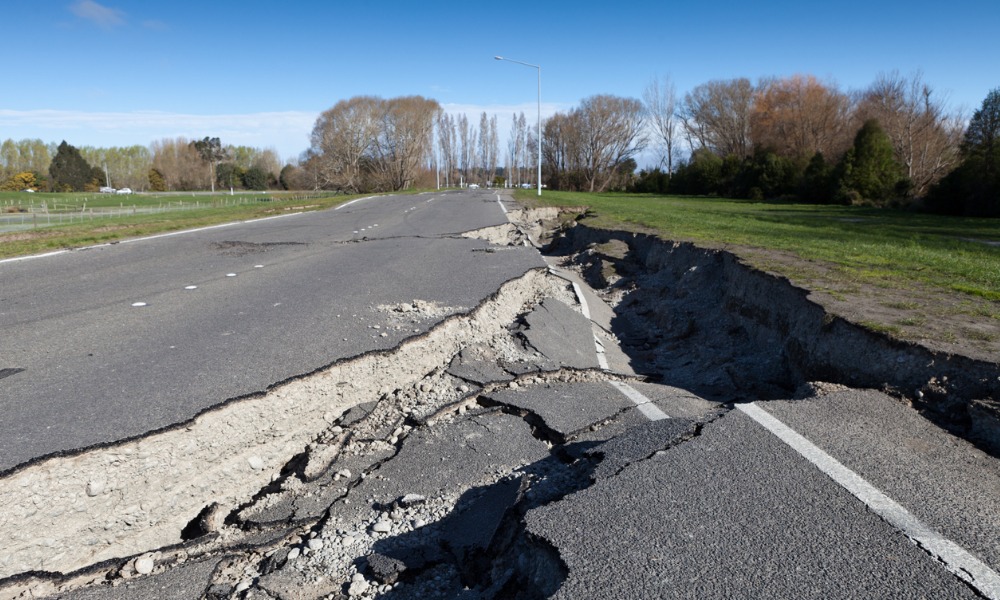Wellington faces potential $2.6 billion shortfall in earthquake rebuild

Wellington faces potential $2.6 billion shortfall in earthquake rebuild | Insurance Business New Zealand
Catastrophe & Flood
Wellington faces potential $2.6 billion shortfall in earthquake rebuild
Investment and insurance status deemed key factors
Catastrophe & Flood
By
Roxanne Libatique
Wellington City Council has been advised that its increasing under-insurance could result in a $2.6 billion shortfall in rebuilding costs if a major earthquake strikes.
The council’s investment and insurance status were discussed in a meeting that included a proposal to sell the council’s shares in Wellington Airport.
She noted that nearly 50% of the council’s investments are in the airport, valued at $278 million. Additionally, the COVID-19 pandemic highlighted the risks of over-reliance on a single asset. She recommended selling the airport shares to help mitigate these risks.
Advantages of selling Wellington City Council’s airport shares
Reeves said proceeds from the sale could be invested in a perpetual investment fund (PIF), potentially growing to $6.4 billion over 50 years with a 7.8% return rate. Over a decade, this fund could generate dividends similar to those expected from the airport investments.
She cautioned that a partial sale would reduce the council’s control over the airport and hinder the PIF’s growth.
“It would be our very serious advice that you would need to really manage the council’s debt because you would still face the same risks that you do now where we have such a significant under-insurance. The legal advice that we have suggests that no sale of any shares – without significant cuts to our debt – would not be prudent,” she said, as reported by RNZ.
If the sale does not proceed, the council would need to revise its long-term financial plan, aiming to reduce its debt by at least $450 million over the next decade. This would involve consulting the community on possible service level reductions and maintaining low debt levels in the long term.
Wellington City Council’s limited borrowing capacity
Council chief executive Barbara McKerrow acknowledged the council’s limited borrowing capacity to manage financial risks without major changes to its long-term plan.
“There is a known problem and the problem has emerged significantly since the last-long term plan when we thought that the headroom we were maintaining in terms of our debt was sufficient to cover the insurance risk we face in the event of a major natural disaster for our city. We know now, based on revised estimates, particularly of the seismic risk our city faces, that that under-insurance risk is a significant $2.6 billion,” she said, as reported by RNZ. “We have to look at the solutions [that] are available to us and there are very few when you look at a gap of that nature.”
Wellington City Council’s public consultation on airport share sale
Public feedback showed that only a quarter of respondents supported a full sale of the airport shares, while over 50% preferred either no sale or a partial sale.
Unions Wellington convener Sabina Rizos-Shaw criticised the council’s assessment for not fully considering alternatives to the sale and its potential impact on workers and the community.
“A privatised airport means less accountability for the public in terms of the working conditions at the airport and the environmental impacts that it may have on the community,” she said, as reported by RNZ.
She argued that even a partial sale would diminish the council’s ability to protect Wellingtonians’ interests in airport operations and community engagement.
“Once we sell the airport, we’re not going to just get it back because we want it. [Current owners] Infratil might be saying that they’re not planning on doing certain things, but they could change their mind about that – they could sell it – and there wouldn’t be any kind of mechanism for the council – who is supposed to be looking after the well-being of the community that they represent – to have any say in that,” she said.
According to the experts, the geological fault – if triggered – could cause unprecedented disaster that could result in loss of many lives and properties.
Related Stories
Keep up with the latest news and events
Join our mailing list, it’s free!






